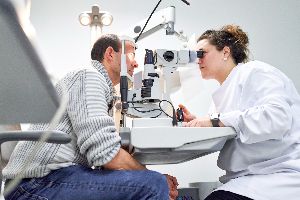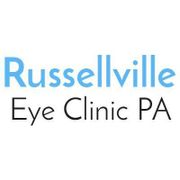
Glaucoma refers to a group of diseases caused by the buildup of pressure inside the eyes. Often, patients do not experience symptoms until it is too late to avoid permanent vision loss or blindness. That's why it is important to have regular glaucoma screenings and begin a treatment plan early. Most patients who have regular eye exams and follow their treatment plan are able to keep their vision.
What Are the Types of Glaucoma?
1. Open-Angle Glaucoma
Also called wide-angle glaucoma, this is the most common type of the disease. It tends to affect patients over the age of 40 who have a family history of glaucoma, diabetes, or common vision problems such as nearsightedness. While doctors are uncertain of the precise cause, it has been linked to the improper drainage of fluids from the eye. As fluid pressure builds, it can alter the structure of the eyes, affecting your vision.
During a glaucoma screening, your eye doctor will use drops to widen your pupils so they can examine the insides of your eyes for any damage caused by excessive pressure. They may take photographs to monitor structural changes over time and develop a treatment strategy to avoid vision loss.
2. Angle-Closure Glaucoma

This type of glaucoma is most common in people of Asian descent. It is also called acute glaucoma and occurs when the space between the iris and cornea becomes narrowed, preventing proper drainage of natural eye fluids. This can create a quick build-up of pressure, leading to vision loss or blindness in a matter of days.
Unlike other types of glaucoma, angel-closure glaucoma can cause sudden intense symptoms, including eye pain, nausea, and blurry vision. If you experience these symptoms, seek medical help immediately. Doctors can use laser treatments to lower the pressure in your eyes and protect your vision.
3. Secondary Glaucoma
Sometimes, other underlying medical conditions, such as diabetes or cataracts, can increase the pressure in your eyes, causing optic nerve damage and vision loss. This condition is called secondary glaucoma, and it can also result from trauma, such as a blow to the eye or a burn. Regular glaucoma screening can help your eye doctor identify dangerous changes in eye pressure and avoid permanent damage. Treatments for secondary glaucoma can include medication or surgery, depending on your general health and medical history.
The dedicated group of optometrists at Russellville Eye Clinic PA, in Russelville, AR, offers a wide range of services to keep your family's vision strong for years. Whether you need routine eye exams, glaucoma screenings, or laser eye surgery, they work with each patient to determine the best possible solutions and treatments. Call them today at (479) 968-7302 or visit them online to learn more about their excellent service.
About the Business


